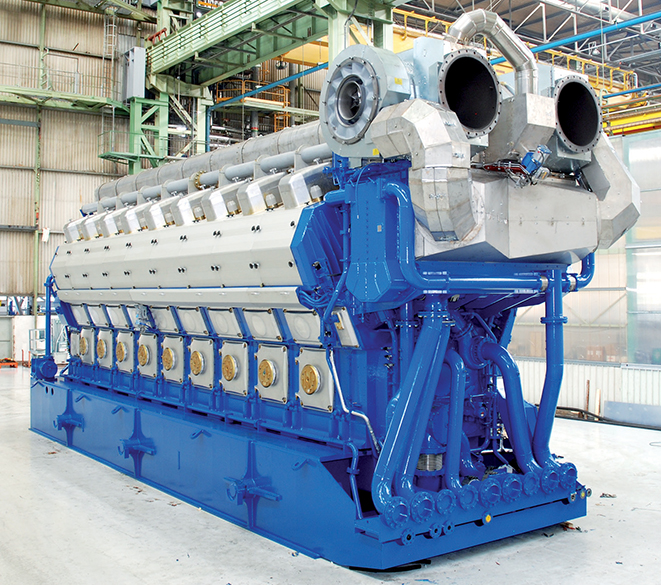Engines For Africa Offers Motors You Can Depend On
Engines For Africa Offers Motors You Can Depend On
Blog Article
A Full Overview to Picking the Right Engine for Your Task
Selecting the appropriate engine for your job is an essential decision that can dramatically influence its general success. Each of these components plays a critical function in guaranteeing that your selected engine not only satisfies prompt purposes yet likewise aligns with long-lasting aspirations.
Define Your Job Requirements
Defining your project needs is a vital action in choosing the ideal engine for effective execution. A comprehensive understanding of your task's objectives will certainly assist you in identifying the attributes and capabilities needed from an engine. Begin by laying out the range of your project, consisting of the desired performance, target audience, and the details outcomes you intend to accomplish.
Next, think about the technological needs that align with your task objectives. This includes examining the compatibility of the engine with existing systems, in addition to the shows languages and structures that will be made use of. In addition, examine the degree of scalability required to accommodate future development or adjustments popular.
Budget plan constraints likewise play an essential role in defining your task needs. Establish a clear monetary framework to direct your decision-making procedure, guaranteeing that the engine chosen fits within your spending plan while offering the required performance.
Evaluate Efficiency Requirements

Next, think about the scalability of the engine. Examine whether it can handle enhanced work as your job expands. Engines that sustain straight scaling are often better for bigger applications. In addition, review the engine's efficiency under various problems, such as peak use circumstances, to guarantee it fulfills your integrity standards.
Take Into Consideration Ease of Use
While technical specifications are crucial, the convenience of use of an engine can significantly influence the growth process and total project success. An user-friendly user interface, clear documentation, and structured workflows can substantially lower the discovering curve for designers, allowing them to focus on creativity and problem-solving as opposed to grappling with complicated tools.
When evaluating an engine's ease of use, think about the onboarding experience. A well-structured introduction, total with tutorials and example jobs, can help with a smoother change for new customers. Additionally, the quality and comprehensiveness of the engine's documentation play a critical function; thorough overviews and API recommendations can encourage developers to repair and carry out functions effectively.
One more element to think about is the engine's modification abilities. An engine that enables simple modifications can be a lot more user-friendly, as developers can tailor it to fit their certain requirements without substantial inconvenience. Evaluate the workflow combination with platforms and devices you already make use of. A natural community can boost efficiency and minimize friction during the development procedure. Eventually, selecting an engine that focuses on ease of use can bring about a much more efficient and enjoyable advancement experience.
Assess Neighborhood and Support
The stamina of an engine's community and support network can significantly affect a developer's experience and success. When analyzing an engine, consider the dimension and task level of its neighborhood.
Moreover, evaluate the accessibility of official support networks. Trustworthy paperwork, receptive customer assistance, and regular updates are crucial for dealing with technological problems and maintaining your job on the right track. Engines For Africa. Active areas also promote cooperation, supplying opportunities for networking and comments, which can be invaluable, specifically for little groups or independent designers
In addition, examine the existence of community-run occasions, such as hackathons or meetups. These events can enhance your understanding of the engine while linking you with potential partners and skilled users. In summary, a durable neighborhood and support system not only simplify advancement click over here yet also develop a setting for discovering and technology, ultimately enhancing the possibility of your task's success.
Compare Cost and Licensing Options
Budget plan factors to consider play a critical duty in picking the right engine for your job, as the expense and licensing choices can substantially influence both temporary expenditures and lasting stability. Engines For Africa. Various engines provide varying pricing frameworks, check these guys out which can consist of one-time purchase fees, membership versions, or revenue-sharing arrangements based upon your job's incomes

Accrediting choices likewise vary significantly. Some engines are open-source, providing flexibility and community-driven assistance, while others might require proprietary licenses that limit usage and distribution. Comprehending the ramifications of each licensing design is important, as it affects ownership legal rights, future scalability, and prospective legal responsibilities.
Verdict
To conclude, picking the proper engine for a project requires a detailed evaluation of specified job demands, efficiency requirements, convenience of use, neighborhood support, and cost factors to consider. By systematically dealing with these crucial factors, decision-makers can make certain positioning with both present and future project demands. An educated choice ultimately enhances the probability of task success, making it possible for reliable source allotment and taking full advantage of possible end results within the specified monetary restrictions.
Selecting the suitable engine for your job is an essential decision that can considerably influence its overall success.Defining your job requires is a vital step in choosing the proper engine for successful execution. A moved here comprehensive understanding of your task's objectives will direct you in identifying the capabilities and functions needed from an engine.When you have a clear understanding of your project requires, the following step is to review the performance demands of the engine.In final thought, selecting the ideal engine for a project demands a detailed evaluation of specified project demands, efficiency needs, ease of use, community support, and price considerations.
Report this page